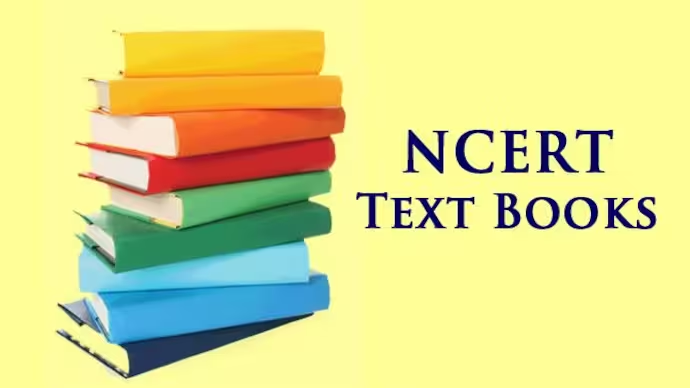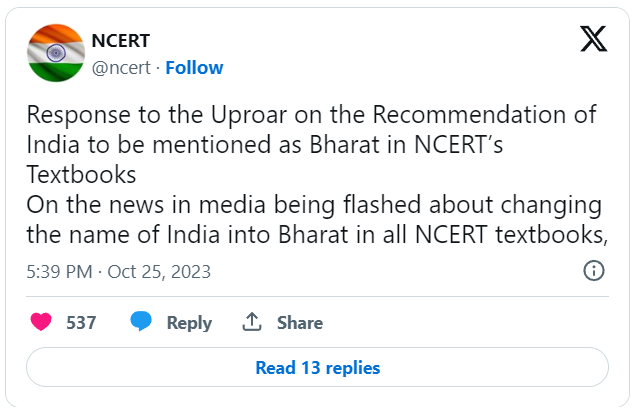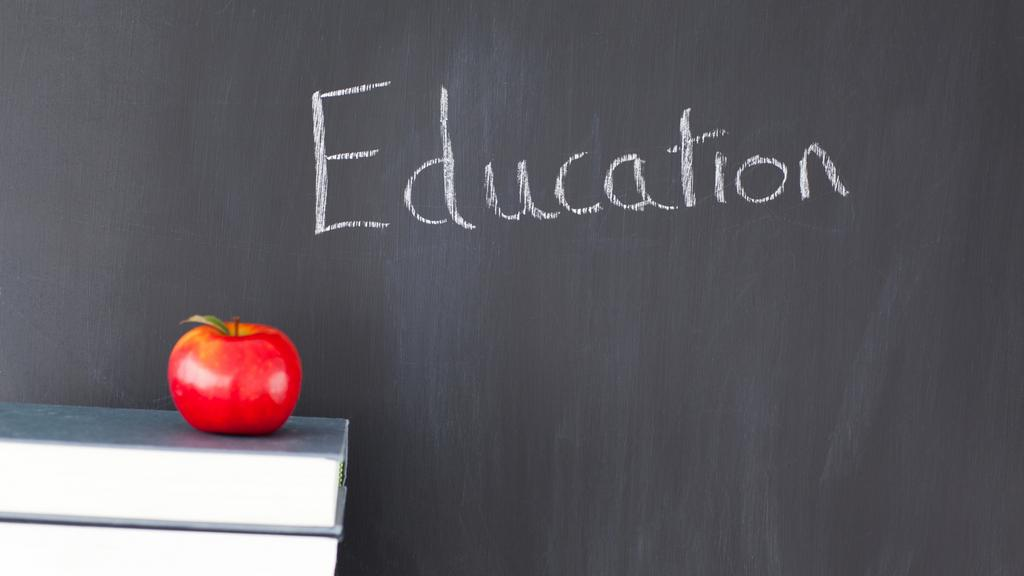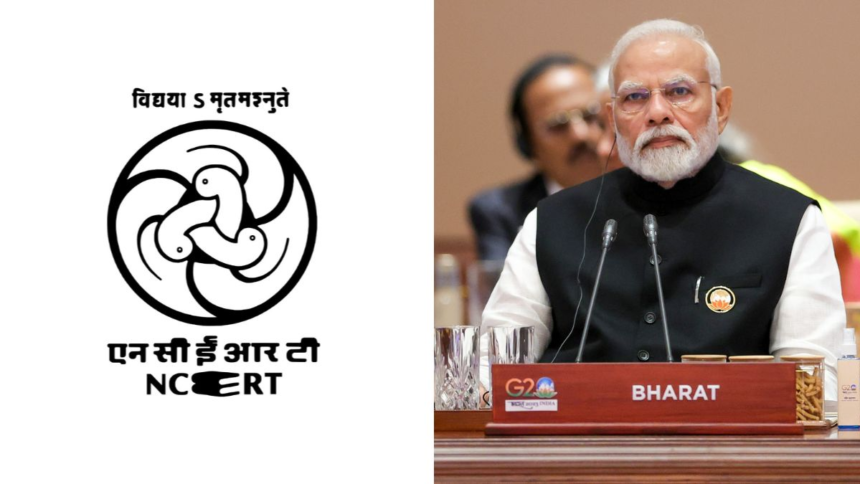NCERT Textbook : The chairman of the 2022 Social Science committee, Prof. C.I. Isaac (Retd.), announced that this recommendation will be put into practice starting with the upcoming academic year
Replacing “India” with “Bharat” in NCERT textbook : Overview
NCERT Textbook : The National Council of Educational Research and Training (NCERT) revision committee has recommended that all social science textbooks up to Class 12 refer to “India” as “Bharat.” The 2022 Social Science committee made this recommendation; according to Prof. C.I. Isaac, the committee chairman, “we are hoping it will be implemented from next academic year, but it all depends on NCERT.” This information was provided to IndianExpress.com. Historian Isaac received a Padma Shri award.
Additionally, he mentioned that the Committee had suggested that a significant portion of the curriculum focus on Indian victories. “We have proposed that historical events that occurred from 1947 to the present day should also be introduced, and the number of hours allocated for pre-independence can be reduced,” he continued. “At the moment, post-independence history is not mentioned in NCERT books.”

ALSO READ : Canadian Grading System In 2023 : Everything You Need To Know For Your Academic Success
Substituting “classical period of Indian history” for “ancient history”
NCERT Textbook : The Committee has also recommended that the term “classical period of Indian history” be used in place of “ancient history.” He also said that the Committee had decided to include more information about the Indian Knowledge System in the curriculum in order to teach students more about the nation’s accomplishments, history, and culture.

Idea proposed after G20 dinner
The proposed revision to the NCERT books comes shortly after a national debate that started in September over the Union government’s use of the term “President of Bharat” rather than “President of India” in invitations for a hosted G20 dinner.

Twitted by NCERT :
NCERT Textbook : In response to the controversy that accompanied this news, NCERT stated that it is “too premature” to make any comments because the Committee has made this recommendation and experts are being consulted. “NCERT says that different Curricular Area Groups of subject experts are being notified by the NCERT because the development of new textbooks and syllabuses is underway. Therefore, NCERT tweeted on “X” that it is too soon to comment on the news that is being reported in the media about the relevant issue.
Concurrently, NCERT commenced the ultimate stage of creating new textbooks by forming a committee consisting of 19 members, whose duty it is to synchronize “school syllabus, textbooks, teaching and learning materials” with the National Curriculum Framework (NCF) for Schools 3–12.

Committee members
NCERT Textbook : Members of this committee include singer Shankar Mahadeva, philanthropist Sudha Murty, field medallist Manjul Bhargava, chairman of PM Bibek Debroy’s Economic Advisory Council, and founding member of Samskrita Bharati Chamu Krishna Shastry, which is affiliated with the RSS.

NCERT Textbook : Potential Impacts on Education
The proposed change is bound to have significant impacts on the education system in India. While some of these are positive, it’s essential to acknowledge the potential challenges.
Strengthening Cultural Education
The replacement of “India” with “Bharat” in textbooks may pave the way for a more robust cultural education system. Students will likely be exposed to a more comprehensive understanding of the country’s history, traditions, and heritage. This, in turn, can contribute to a more profound sense of identity and belonging.
Challenges in Implementation
However, it’s crucial to recognize that implementing such a significant change is not without its challenges. Updating textbooks, curricula, and educational materials on a national scale is a complex and resource-intensive endeavor. Additionally, it may take time for students, teachers, and parents to adapt to the new terminology.

Public Opinion and Controversy
The NCERT’s enthusiastic recommendation has sparked extensive public debate and controversy. Various stakeholders, including educators, parents, and policymakers, have voiced their opinions, resulting in a vibrant discourse.
Support for the Change
Proponents of the change argue that using “Bharat” instead of “India” is a step toward strengthening the national identity and pride of Indian citizens. They believe that embracing the country’s historical name will connect the present generation with its rich heritage, fostering a sense of unity and belonging.
Opposition to the Change
On the other hand, critics argue that the change may be unnecessary and could lead to confusion, especially for students who are already accustomed to the term “India.” They express concerns about the potential practical challenges in implementing this change on a large scale.

NCERT Textbook : Conclusion
NCERT Textbook : The NCERT’s enthusiastic suggestion to replace “India” with “Bharat” in school textbooks for 2024 is undoubtedly a move that aims to inspire a deeper connection between students and their country’s rich cultural heritage. While it has received both support and criticism, there’s no denying that this proposal will shape the future of India’s educational landscape. Only time will tell whether this change successfully achieves its intended purpose.
To see the latest post – Click Here
ALSO READ : Gases In The Atmosphere : What Is The Reason For The Absence Of Mass-Based Gas Separation In The Atmosphere?




































